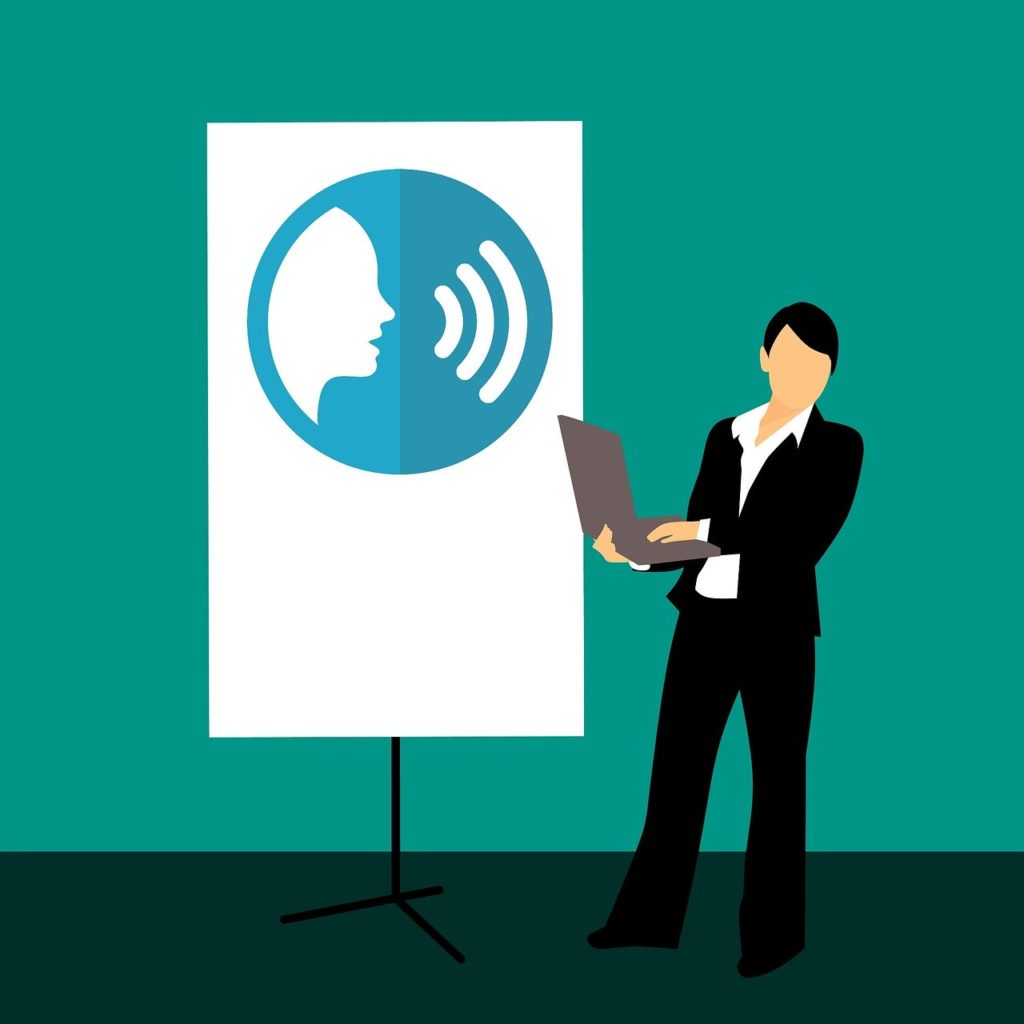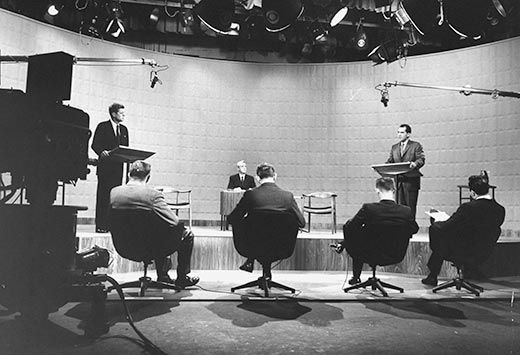Table of Contents
Why are Communication Skills so important for professionals?
Communication is at the root of almost everything we do, so it is vitally important to develop and keep developing effective communication skills.
Acquiring a toolset of communication skills is vitally important!
Communication is a major player in world affairs, in politics, in the business world, within families, and down to the very simple (or not so simple) interpersonal communication.
Understand that the way you communicate is a direct reflection of how you think, how you are, and how people perceive you. To put it more clearly, your choice of words, your tone of voice, and your body language tell your story exactly.
Those who are trained know this fact and judge your competence or lack thereof by your style of communication.
As a professional, you need to take this fact on board and develop communication skills that reflect who you want to be.
They are your ambassador to the world! you are judged and valued by them.
These skills must be learned and practiced to be able to rise above mediocre communication that has taken over the majority of the population.
The ability to improve communication skills is greatly aided by understanding & learning to avoid common communication mistakes.
This article will focus on 10 main communication mistakes, which will give you a backdoor entry and a deeper grasp of understanding the concept of communication strategies.
Effective communication skills are necessary on 3 levels:
- Internal-how we think and communicate to ourselves
- Interpersonal- how we communicate one-on-one
- Public speaking- crowd communication, which is the way we address groups and crowds.
How we Think/Talk to Ourselves Is Key to Effective Communication Skills

That’s a vital aspect to understand.
Firstly, to become aware that we constantly communicate inwardly, where no one but us can hear the inner conversation.
Secondly, the way we address ourselves will determine how we address others.
Thirdly, It will also determine what we actually hear when others speak to us because as we communicate on all levels we create vacancy and openness to similar things.
Very often we translate what we hear from others according to what our internal “chief editor” will allow us to hear and perceive. This is our perception, and perception, dear readers, always trump facts.
This will affect our response and communication style, because what we may hear maybe the voice of our parents which we dress up with what we hear now. Psychology calls it TRANSFERENCE.
We won’t get into the communication complexities of that here, but just know that how and what we communicate to ourselves has a huge effect on what we think we hear and perceive from outside.
It also has a huge influence on the ability to form communication strategies.
Interpersonal Effective Communication Skills

Every person you communicate with, through verbal and nonverbal communication is your audience!
Furthermore, understand that your listener, which is your audience (however brief the encounter might be) is your main stakeholder, and it’s upon you to adapt, get on their frequency, and mirror their style of communication.
After all, if your audience does not understand you it doesn’t matter what you say or how intelligent your message might be. The bottom line is that you will not reach them.
There, simply, won’t be a connection if you don’t “speak” their language….think about it!
Communication strategies are all about that- It is strategic planning and communication together, which is the ability to plan ahead how you will communicate to your audience through verbal and nonverbal communication.
The 10/40/50 Rule-How to maximize your communication skills
The Presidential Debates between Nixon & Kennedy in the 6o’s are the best way to explain that communication law.

During the 1960 debates between the two candidates, Americans for the first time could tune in and watch the debates on television, not just listen on the radio. …
When they turned on their television sets, they saw a tired Richard Nixon with a body language of a tired old man. Kennedy, on the other hand, looked tanned and handsome 36 yr old.
The results were staggering. Those who saw the debates gave a 20% victory to Kennedy. However, those who listened to the debates on the radio and didn’t have the visual called it a tie.
This was the turn around in the elections which gave Kennedy the presidency.
When verbal and nonverbal communication merges in sync the message becomes 10 times more powerful.
Words alone have 10% power while the tone of voice has 40% power and body language has 50%.
Unfortunately, this fact is very often neglected as communicators pay far more attention to what they say than to how they say it and miss the opportunity to get their message across in a wholesome fashion.
This is the basis of becoming an effective communicator and getting the communication skills that empower your message.
Communication Skills – 10 Common Communication Mistakes To Avoid
1. Listening Before You Speak
The greatest mistake in communication is not to listen to people prior to speaking to them.
Clearly, listening means much more than a shallow level of hearing.
To really listen is to get to know your audience in depth. A good communicator listens to people and then crafts his message. The act of listening allows the communicator to be in tune with their audience and devise communication strategies accordingly.
Speaking To People is About THEM Not About You!!!
Make sure that part of your communication skills is to tune your mind and emotions to the nature of your audience and make them the center of attention. “Sing their song”, not yours.
Very often leaders talk endlessly about themselves and quickly lose their audience. There are so many examples of that these days.
2. Speaking Too Fast 
Communication is Qualitative, not Quantitative.
If you speak fast your audience will not absorb more. The contrary is true. The faster you speak the less they’ll get.
So…SLOOOOW DOOOWWWN – talking fast is ineffective – people just don’t get the message at depth and will tend to forget it, misinterpret it and get their own version of it..
Even if your audience is pressuring you to get to the “meat of the matter”- resist speeding up at all costs. In the long run, your ability to communicate using the right speed will improve your communication skills and your charisma.
3. Not Involving Your Audience

“One-way-street” communication is dominant and does not work well these days, it does not allow for interactivity, which is the key to dynamic speech.
Furthermore, it alienates your younger crowd, which tends to be more dynamic and energetic by nature and, therefore, prone to boredom more than previous generations.
So make sure you don’t “preach” but rather solicit interaction, views, and questions.
4. Getting To The Point Too Fast
Not realizing that speaking to people is an opportunity for a “theater of humanity” that goes far beyond the message you want to deliver.
Therefore, learn to “tango” with your audience. Learn to capture their mind and emotions by the harmony you create between your verbal and nonverbal communication.
Getting to the point too fast and failing to take the time to warm people to your message is a mistake that will result in alienating your audience.
When speaking to your audience you must give people the feeling that you say “Yes” to them and that they are important to you, and you do that by warming them up to you!
5. Using Too Much Explanatory Language
This is boring… and is a sure way to lose people!

You must not give them the painful experience they remember from their school days. (In my humble opinion this is one of the main reasons why Hillary Clinton lost the 2016 presidential elections; She tried to explain too much, while Trump moved people by speaking to their emotions…the accuracy of the message didn’t matter!)
6. Losing The Human Contact
Eye contact conveys togetherness.

Don’t rely too much on a PowerPoint or reading to people from your notes. When you do that you lose contact with your audience. Your audience came to hear/feel the message.
When you communicate you give YOU, so make sure it’s YOU they get not some rehashed information they can Google on their own.
7. Being Too Tense And Infecting The Audience With Your Nerves
When you are tense you try to do too much, that’s because you keep getting the feeling that you are not doing enough.

THIS IS YOUR FEELING! THE AUDIENCE DOESN’T WANT THAT!
Instead, you will infect the audience with your tension because communication is a highly conductive transference of energy.
Once your audience becomes tense and nervous their ability to absorb and retain your message is greatly compromised!
8. Monotonous Tone of Voice That Doesn’t Match The Message
A tone of voice that does not match the words – for example saying “good morning” without providing the feeling of good morning in the words is useless and misses an opportunity to warm up the atmosphere.
People don’t respond to words – they respond to the emotions that travel with the words!
Therefore, learn to incorporate the right kind of emotions that belong to the message. This is what communication strategies are about.
It is important to note that humor has an important positive influence on communication as it “spices up” the message and increases the level of openness of your audience to you.
9. Body Language That Doesn’t Match The Message

Remember that body language that is contradictory to the message creates dissonance with your audience – for example, to talk about the bright future full of promise with a serious facial expression, will create contradiction and you’ll come across unreliable.
10. Talking in Negative Terms
Negative seems to work for a while but in the end, it always backfires. Try and endeavor to cultivate a positive message because positivity is the best long-term strategy there is.
Tap into the power of positive thinking with your message and you’ll be surprised at the level of success you’ll achieve in terms of message absorption, and more importantly, in terms of their image of you.
*********
Finally – Training To Improve Your Communication Skills
This is only the “tip of the iceberg”, as all of the above points can and need to be expanded upon in Communication Skills Training courses through explanation & demonstration in a workshop style, to bring it all alive.
There are untold benefits that come from acquiring communication skills and forming communication strategies.
I can’t wait to show you how to transition from just having knowledge about communication to having communication intelligence that comes from learning and applying simple and powerful tools that very few ever use.
This can be a powerful catalyst for you to leap to the next level.
Eli Harari
The Life Coach for Professionals™


I have read through all the mistakes you mentioned and the biggest mistake that I am extremely guilty of is bring way too explanatory. I am too logical. That’s why in conversations, I am the first one to be ignored. I always wonder why when I have everyone’s best interest heart,I don’t get the attention I deserve. I will be careful from now on and appeal to emotions only when I talk. Do think this will also help me more with speaking with friends and family? Like small talk.
I am glad you found something that helped you in my article. It is always the balance between explaining and appealing to the emotions that works best. I wouldn’t suggest to stop explaining but remember that when you speak it is your audience that determines how you speak not you. What do you think?
Thanks for this very clear overview about the glitches that easily mess up two-way communication.
All of them, it seems to me, point us to really engaging with the people to whom we talk or write — being THERE with them, being interested in what they have to say as well as trying to tell them what we think as well.
Thanks for the reminders. It’s so easy to forget when you’ve got some message you really want to deliver.
Yes, thanks for the comment, indeed everything comes backs to basics. the problem is that the basics have been forgotten, and that is for a reason, people are “outside” of themselves and are mostly disconnected from their “being”.
You’d think it would be natural for a person to just be there and listen with the whole of themselves when someone is speaking but this not longer happens and almost in every situation the span of attention and interest is minimal indicating lack of development in the “brain” level. So communication is merely a symptom of lack of development or development of the brain. Reminders help, but they need to be there everyday.
The thinking coach training focuses on brain development first and the ability to be connected to ourselves, to listen and be listened to. to respect and be respected, to empower and be empowered.
Thank you,
Orion
I can say that I have experienced each of these types of communication. To be honest, I have likely been the communicator for each of these types of communication! Over the years I have learned to be a better listener, and I have found out it is quite effective.
Do you see that almost all of you points can apply to writing? What type of communication is taking place when a person “lights up a room”?
Pingback: Keep Your Customers Happy With Emotional Intelligence Skills
Pingback: 4 Critical Thinking Keys To Establishing A Healthy Work Environment - The Thinking Coach
Pingback: Leadership Development Training - The 5 Key Questions
Pingback: 5 Super Tips to Unleashing the Power of Strategic Communication - The Thinking Coach